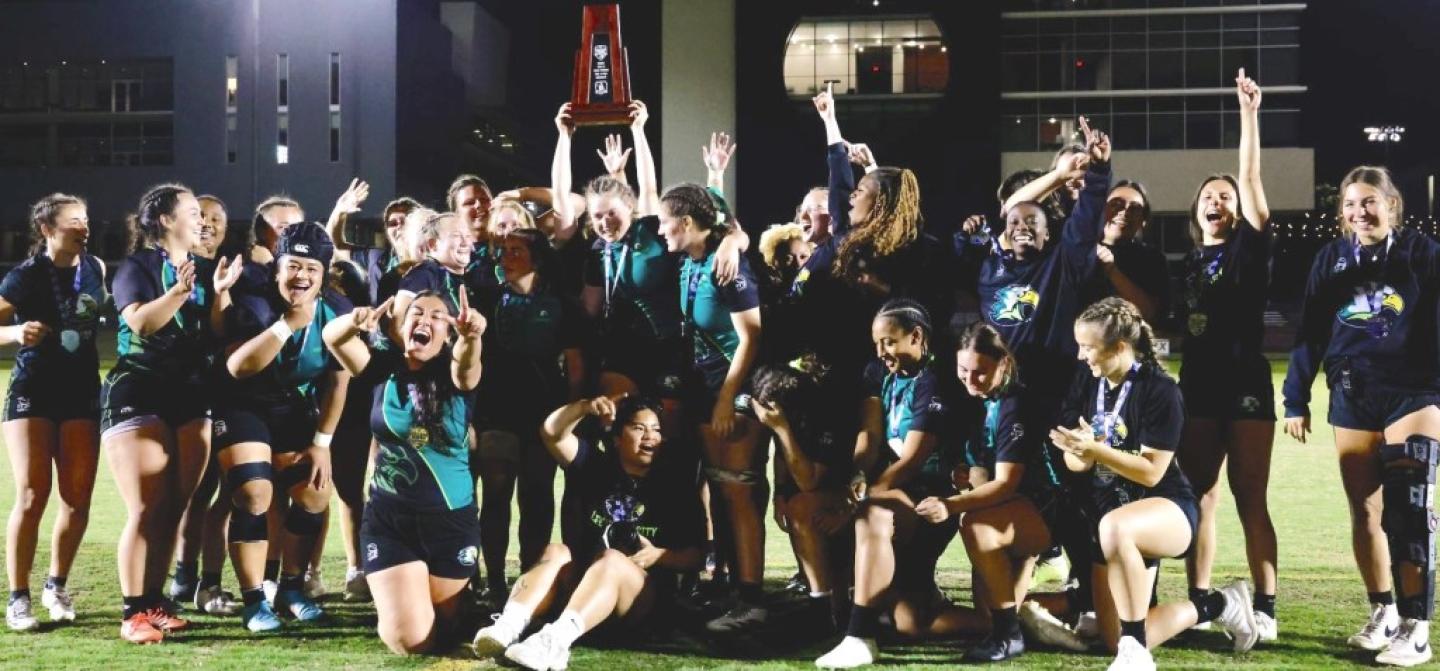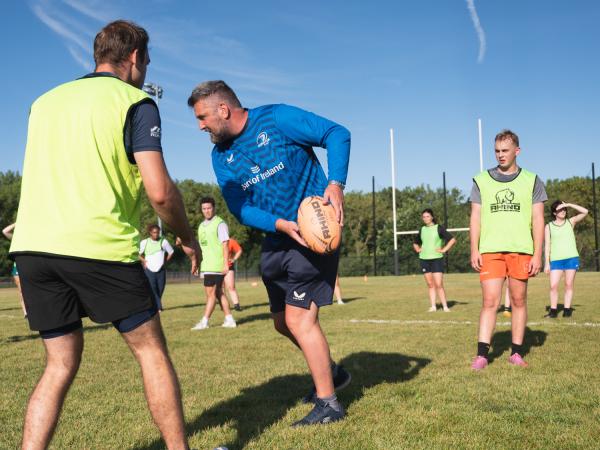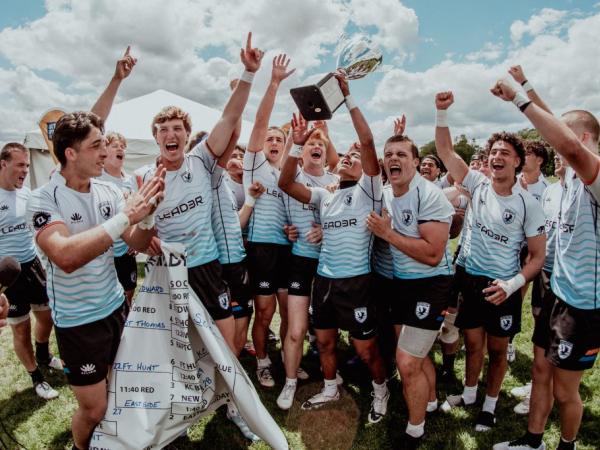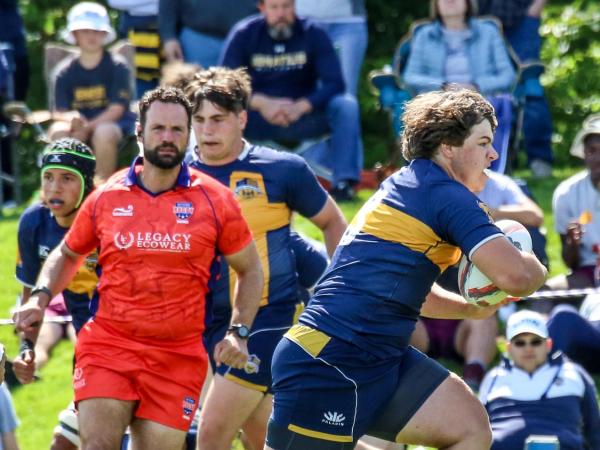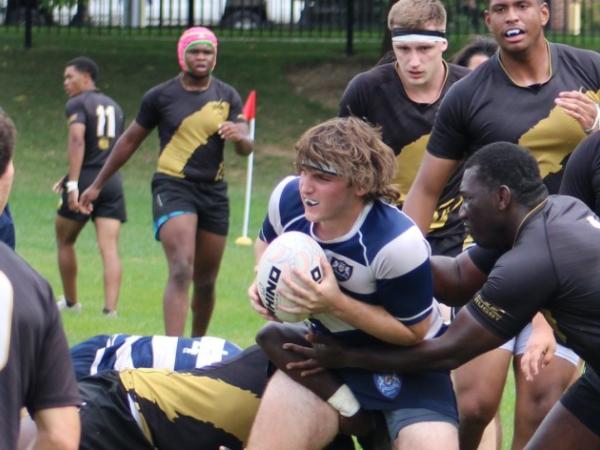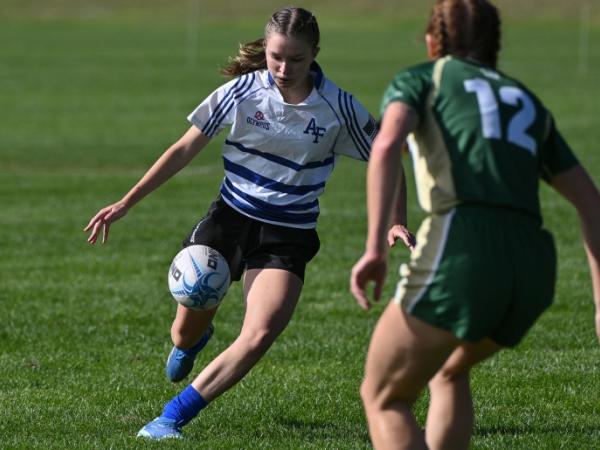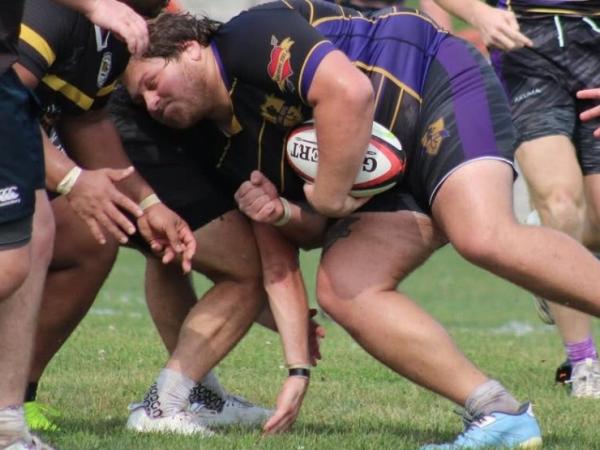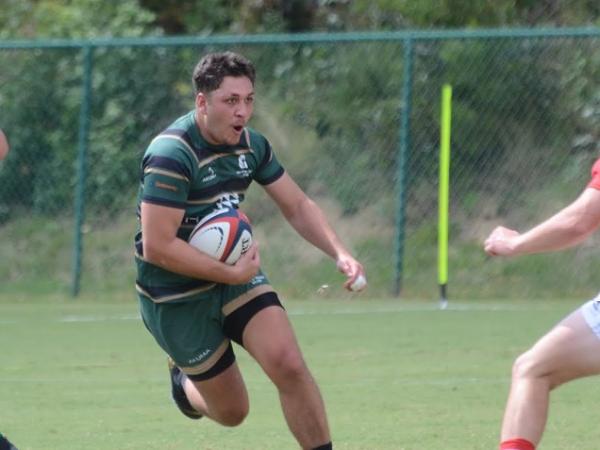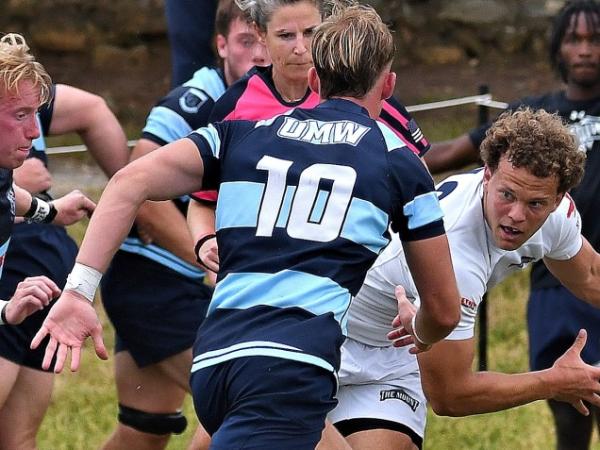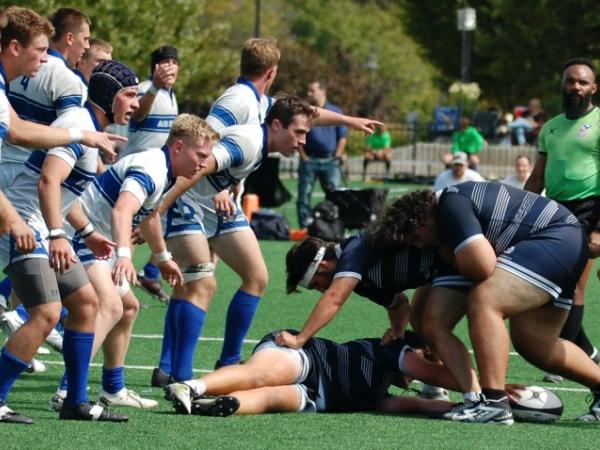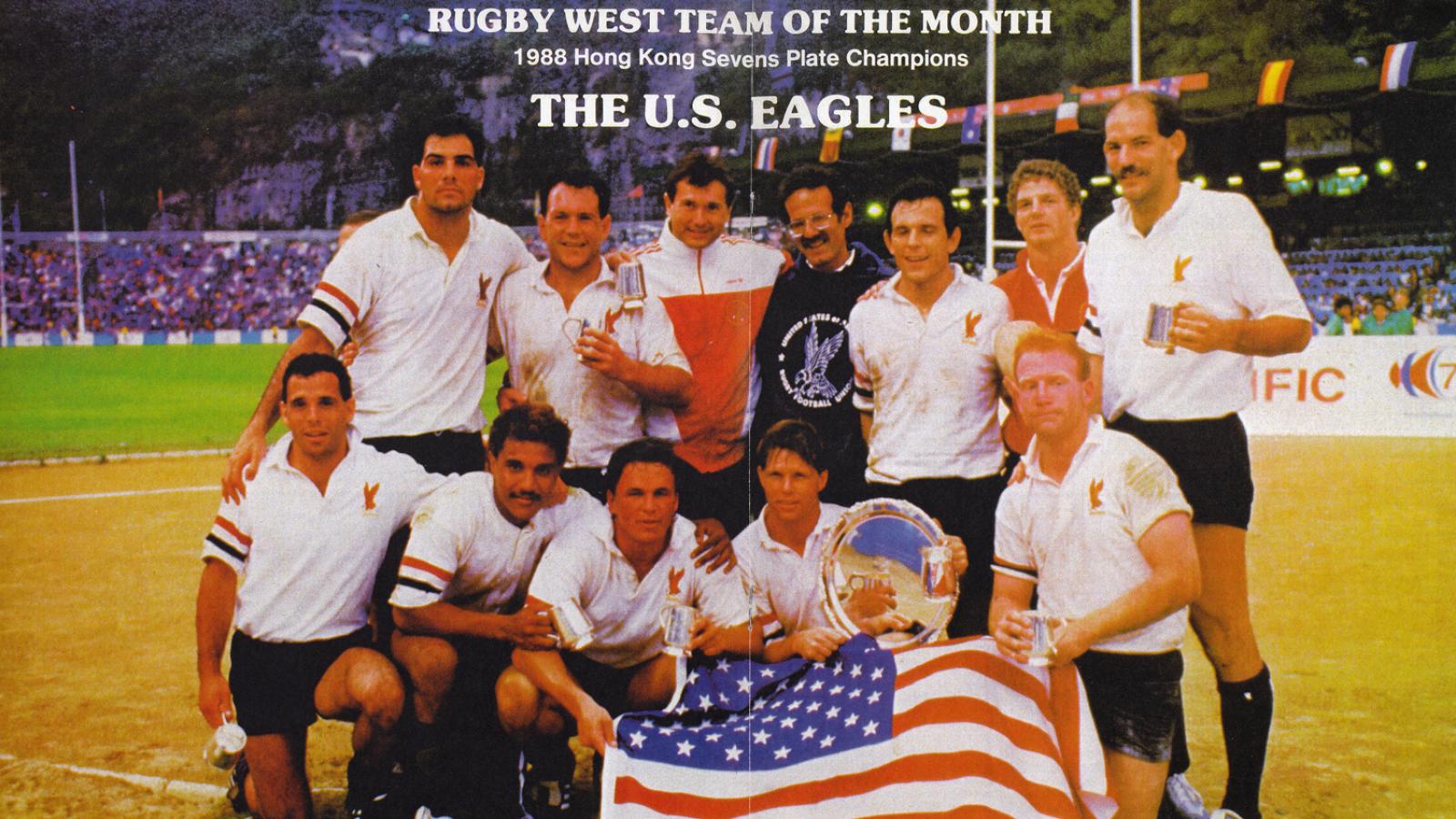One of the upshots of the changes is Women’s D1A College is to leave Life University isolated both geographically and in terms of competition.
D1A (formerly D1 Elite) lost Central Washington when the school pulled the program’s funding, and lost Lindenwood as they move to NIRA.
With that, and with Penn State finishing their season playing 7s, the D1A had shrunk significantly. Recently, CRAA announced that they would allow teams to play in NCR competition and playoffs in the fall and still be eligible (if they are CRAA/USA Rugby registered) for the spring postseason. Penn State, Wheeling, and BYU are three teams listed as having said they would do both. Life did not.
So at a major collegiate level only BYU has committed to playing them this coming season, while Wheeling Head Coach Ken Pape said he wanted to play the Running Eagles as well. This has emerged as a bit of a crisis moment for the Running Eagles. With their large roster of players and proven ability to compete at a multitude of levels, might they pivot to operating as something more akin to an elite development program?
Life is already a daily training environment and has shown that its younger players can handle themselves in the college sphere, so could they also then play their older players in club rugby?
A Club/College Hybrid?
They tried, and found some roadblocks, chief among them was not being able to join the Atlantic D1W league. Margy Dessypris Thomas, who has headed up the Mid-Atlantic region, was asked by GRR about this.
“It is unfortunate for them,” Dessypris Thomas said of Life University. The problem, she added, was a bunch of other things were changing in the relevant leagues, specifically the Atlantic D1W Super Region. That league includes Atlanta Harlequins, Beantown, Boston, DC Furies, New York, NOVA, Philadelphia, and Raleigh Venom.
That’s a pretty robust league with eight teams. But that doesn’t tell the entire story. Atlanta had been struggling for numbers for years and were ineligible for the postseason this past season because they had been forfeiting too many games. They are now expected to be back as full members of the competition. As the same time, New York and Beantown were pushing to join the league, basically expanding the league from five to eight.
“There was already some additional changes going in the Atlantic D1W league that raised concerns from the clubs and the amount of growth at one time,” continued Dessypris Thomas. “We're letting Atlanta return from sanctioned participation, and NY and Beantown were in discussion at the same time. It was a challenging planning cycle to get through.”
But the wheels were still in motion. Dessypris Thomas and USA Rugby 15s Competitions Chair David McPhail were looking for other options, and the Gulf Coast Super Region (which is essentially Texas and Arkansas at the D1 level) was a possibility.
The Gulf Coast League is smaller than the Atlantic league, and needs more teams. In the 2023-24 season Utah (!) was in the Gulf Coast, and in fact won that super regional. This past season they joined the more geographically-logical Pacific, won it, and went on to beat NOVA in the national D1 final.
But while the Gulf Coast conjures up images of teams all along the Gulf Coast, in women’s D1 club rugby, that’s not exactly the case. The competition is centered around Texas and Arkansas, with Little Rock, Houston, Austin, San Antonio, and Dallas competing.
Between Texas and Atlanta you have some teams that play a different division, and it would not be constructive to force some of those teams (New Orleans, Battleship, Panama City Beach) to move up just to accommodate Life.
But it’s good enough. Life has announced that they are joining the Texas league (which serves as the Gulf Coast D1 Super Region). Older players in the program will play in this league, while younger players will play in Women’s D1 College. There will be a flex group that might play in either. In addition, they have reached an agreement with the Carolinas Rugby Union, which operates a women’s club league at a slightly lower divisional level, but can offer competition, as well.
“We are incredibly excited to welcome Life University Women into the WD1 League,” said McPhail. “Their inclusion reflects the expanding depth of women’s rugby in this country and further strengthens the competitive nature of the WD1 league. Life University has long been a cornerstone of collegiate rugby, and their presence will elevate the league as we continue to grow the game across the Gulf Coast and beyond.”





